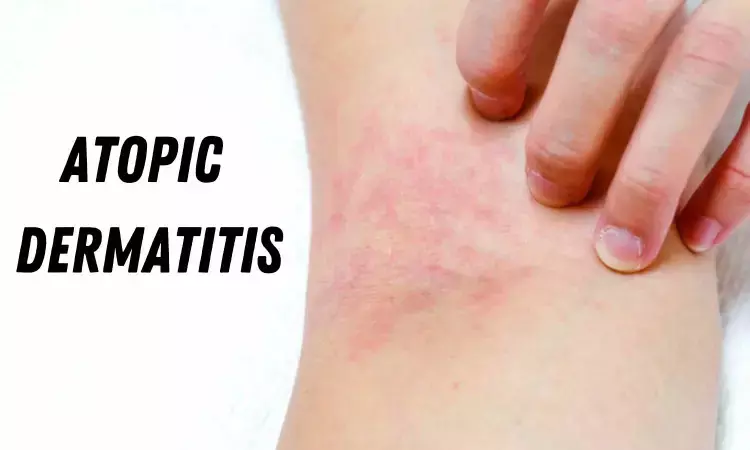- Home
- Medical news & Guidelines
- Anesthesiology
- Cardiology and CTVS
- Critical Care
- Dentistry
- Dermatology
- Diabetes and Endocrinology
- ENT
- Gastroenterology
- Medicine
- Nephrology
- Neurology
- Obstretics-Gynaecology
- Oncology
- Ophthalmology
- Orthopaedics
- Pediatrics-Neonatology
- Psychiatry
- Pulmonology
- Radiology
- Surgery
- Urology
- Laboratory Medicine
- Diet
- Nursing
- Paramedical
- Physiotherapy
- Health news
- Fact Check
- Bone Health Fact Check
- Brain Health Fact Check
- Cancer Related Fact Check
- Child Care Fact Check
- Dental and oral health fact check
- Diabetes and metabolic health fact check
- Diet and Nutrition Fact Check
- Eye and ENT Care Fact Check
- Fitness fact check
- Gut health fact check
- Heart health fact check
- Kidney health fact check
- Medical education fact check
- Men's health fact check
- Respiratory fact check
- Skin and hair care fact check
- Vaccine and Immunization fact check
- Women's health fact check
- AYUSH
- State News
- Andaman and Nicobar Islands
- Andhra Pradesh
- Arunachal Pradesh
- Assam
- Bihar
- Chandigarh
- Chattisgarh
- Dadra and Nagar Haveli
- Daman and Diu
- Delhi
- Goa
- Gujarat
- Haryana
- Himachal Pradesh
- Jammu & Kashmir
- Jharkhand
- Karnataka
- Kerala
- Ladakh
- Lakshadweep
- Madhya Pradesh
- Maharashtra
- Manipur
- Meghalaya
- Mizoram
- Nagaland
- Odisha
- Puducherry
- Punjab
- Rajasthan
- Sikkim
- Tamil Nadu
- Telangana
- Tripura
- Uttar Pradesh
- Uttrakhand
- West Bengal
- Medical Education
- Industry
Topical JAK inhibitors effective against atopic dermatitis

A recent systematic analysis reveals that topical JAK inhibitors (JAKi) are both effective and safe for the treatment of atopic dermatitis (AD) in pediatric and adult populations. The dysregulation of both the innate and adaptive immune systems has a significant impact on AD, and JAKi has been proven to reduce the production of cytokines that produce inflammation in the form of AD. The findings of this study were published in Experimental Dermatology.
The most prevalent inflammatory skin disorder is atopic dermatitis. The pathogenesis of Alzheimer's disease is heavily influenced by dysregulation of the innate and adaptive immune systems. Janus Kinase Inhibitors limit the generation of pro-inflammatory cytokines and are a possible new therapy for Alzheimer's disease. As a result, Sara Sadeghi and colleagues undertook this study to evaluate and describe the overall effectiveness and safety of topical JAKi in the treatment of AD in adults and children.
Until June 14, 2022, a broad search was conducted on Ovid Embase, Ovid Medline, Web of Sciences, Cochrane Library, CINAHL, Scopus, and Google Scholar. Following screening, 19 studies were selected for final evaluation. The present systematic review was carried out in accordance with PRISMA, and the protocol was entered into PROSPERO.
The key findings of this study were:
Topical delgocitinib, cerdulatinib, ruxolitinib, tofacitinib, and ifidancitinib are useful in the treatment of Alzheimer's disease and considerably improve EASI, IGA, pruritus-NRS score, and other indicators in adults.
Furthermore, topical delgocitinib was found to be highly effective in the treatment of Alzheimer's disease in children.
All topical JAKi had a low probability of mild-to-moderate side effects.
Overall, the study determined that topical JAKi showed high effectiveness and safety in the treatment of Alzheimer's disease, while they emphasized that further study with a longer duration and head-to-head comparison studies may be required to discover which ones exhibit the least unwanted effects. The researchers went on to say that while topical JAKi therapies are new, further study is needed to examine their safety and efficacy in a range of skin diseases, particularly in younger populations. This is due, in part, to the fact that pediatric patients are among the most severely affected by Alzheimer's disease.
Reference:
Sadeghi, S., & Mohandesi, N. A. (2023). Efficacy and Safety of Topical JAK inhibitors in the Treatment of Atopic Dermatitis in Pediatrics and Adults: A Systematic Review. In Experimental Dermatology. Wiley. https://doi.org/10.1111/exd.14753
Neuroscience Masters graduate
Jacinthlyn Sylvia, a Neuroscience Master's graduate from Chennai has worked extensively in deciphering the neurobiology of cognition and motor control in aging. She also has spread-out exposure to Neurosurgery from her Bachelor’s. She is currently involved in active Neuro-Oncology research. She is an upcoming neuroscientist with a fiery passion for writing. Her news cover at Medical Dialogues feature recent discoveries and updates from the healthcare and biomedical research fields. She can be reached at editorial@medicaldialogues.in
Dr Kamal Kant Kohli-MBBS, DTCD- a chest specialist with more than 30 years of practice and a flair for writing clinical articles, Dr Kamal Kant Kohli joined Medical Dialogues as a Chief Editor of Medical News. Besides writing articles, as an editor, he proofreads and verifies all the medical content published on Medical Dialogues including those coming from journals, studies,medical conferences,guidelines etc. Email: drkohli@medicaldialogues.in. Contact no. 011-43720751


